Rear Disc Brake Pads Replacement Except 15 Series Pickup
Removal Procedure
- Inspect the fluid level in the brake master cylinder reservoir.
- If the brake fluid level is midway between the maximum--full point and the minimum allowable level, no brake fluid needs to be removed from the reservoir before proceeding.
- If the brake fluid level is higher than midway between the maximum-full point and the minimum allowable level, remove brake fluid to the midway point before proceeding.
- Raise and support the vehicle. Refer to Lifting and Jacking the Vehicle in General Information.
- Remove the tire and wheel assembly. Refer to Tire and Wheel Removal and Installation in Tires and Wheels.
- Inspect the caliper operation. Refer to Brake Caliper Inspection .
- Remove the caliper from the mounting bracket and support the caliper with heavy mechanic's wire or equivalent. DO NOT disconnect the hydraulic brake flexible hose from the caliper. Refer to Front Brake Caliper Replacement .
- Inspect the caliper assembly. Refer to Brake Caliper Inspection .
- Remove the brake pads from the brake caliper bracket.
- Remove and discard the anti-rattle clips from the brake caliper mounting bracket.
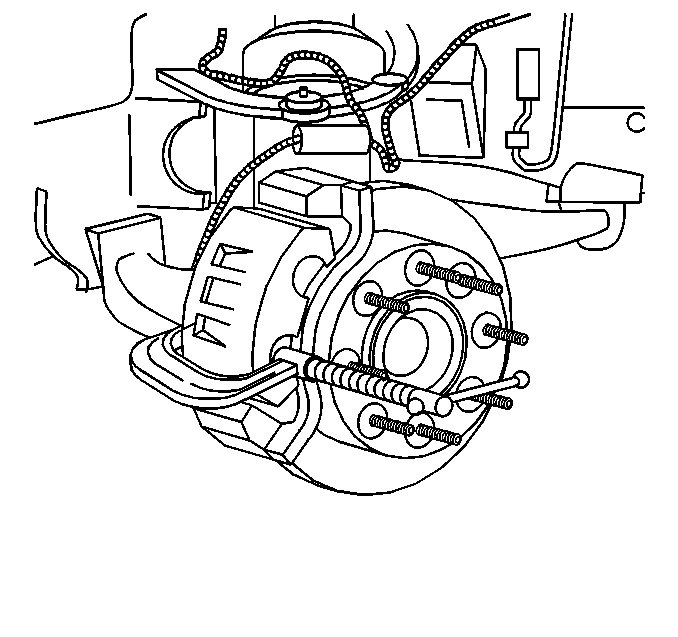
Notice: Support the brake caliper with heavy mechanic wire, or equivalent, whenever it is separated from its mount and the hydraulic flexible brake hose is still connected. Failure to support the caliper in this manner will cause the flexible brake hose to bear the weight of the caliper, which may cause damage to the brake hose and in turn may cause a brake fluid leak.
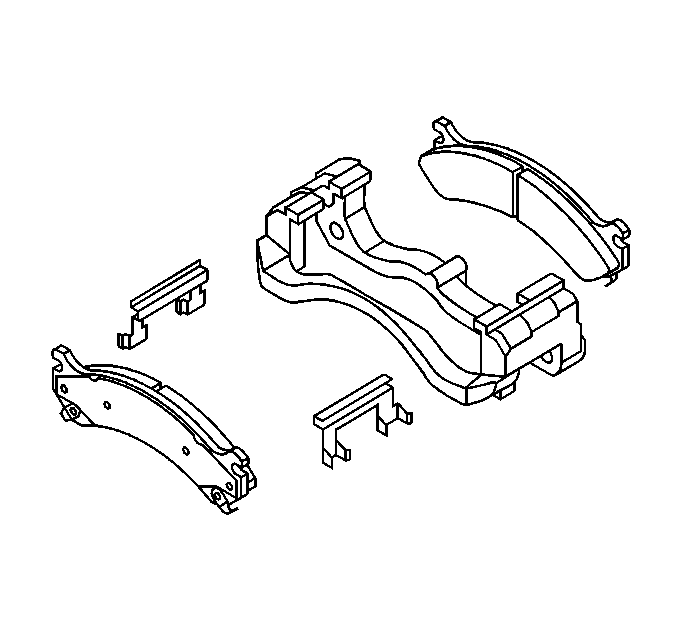
Installation Procedure
- Using a C-clamp, bottom the piston into the caliper bore. Use an old brake pad or wooden block placed across the face of the piston. Do not damage the piston or the caliper boot.
- Install the anti-rattle clips to the brake caliper bracket.
- If working on a 2WD 1500 series utility, install the inboard rear pad to the brake caliper bracket with the longer pad end chamfer facing down. For all other trucks, install the brake pads to the brake caliper.
- Install the brake caliper to the mounting bracket using NEW bolts. Refer to Rear Brake Caliper Replacement .
- Install the tire and wheel assembly. Refer to Tire and Wheel Removal and Installation in Tires and Wheels.
- Remove the safety stands.
- Lower the vehicle.
- With the engine OFF, gradually apply the brake pedal to approximately 2/3 of it's travel distance.
- Slowly release the brake pedal.
- Wait 15 seconds, then repeat steps 8-9 until a firm pedal is obtained. This will properly seat the brake caliper pistons and brake pads.
- Fill the master cylinder reservoir to the proper level with clean brake fluid. Refer to Master Cylinder Reservoir Filling in Hydraulic Brakes.
- Burnish the brakes pads and rotors as necessary. Refer to Brake Pad and Rotor Burnishing .
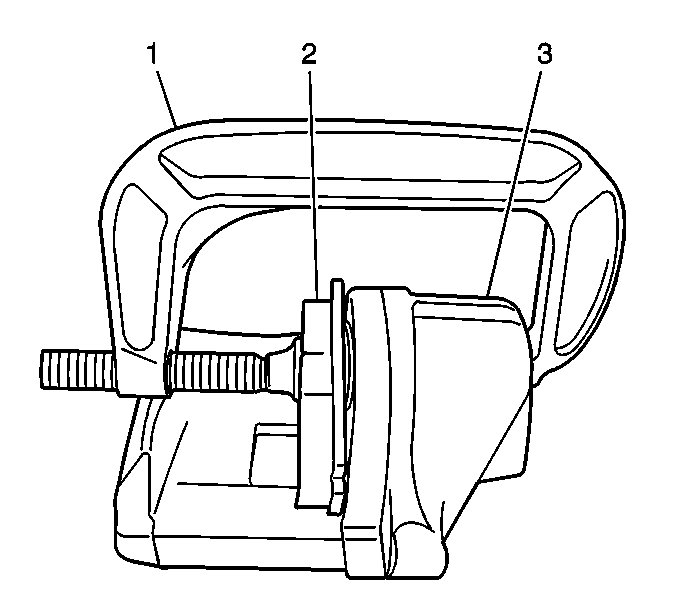

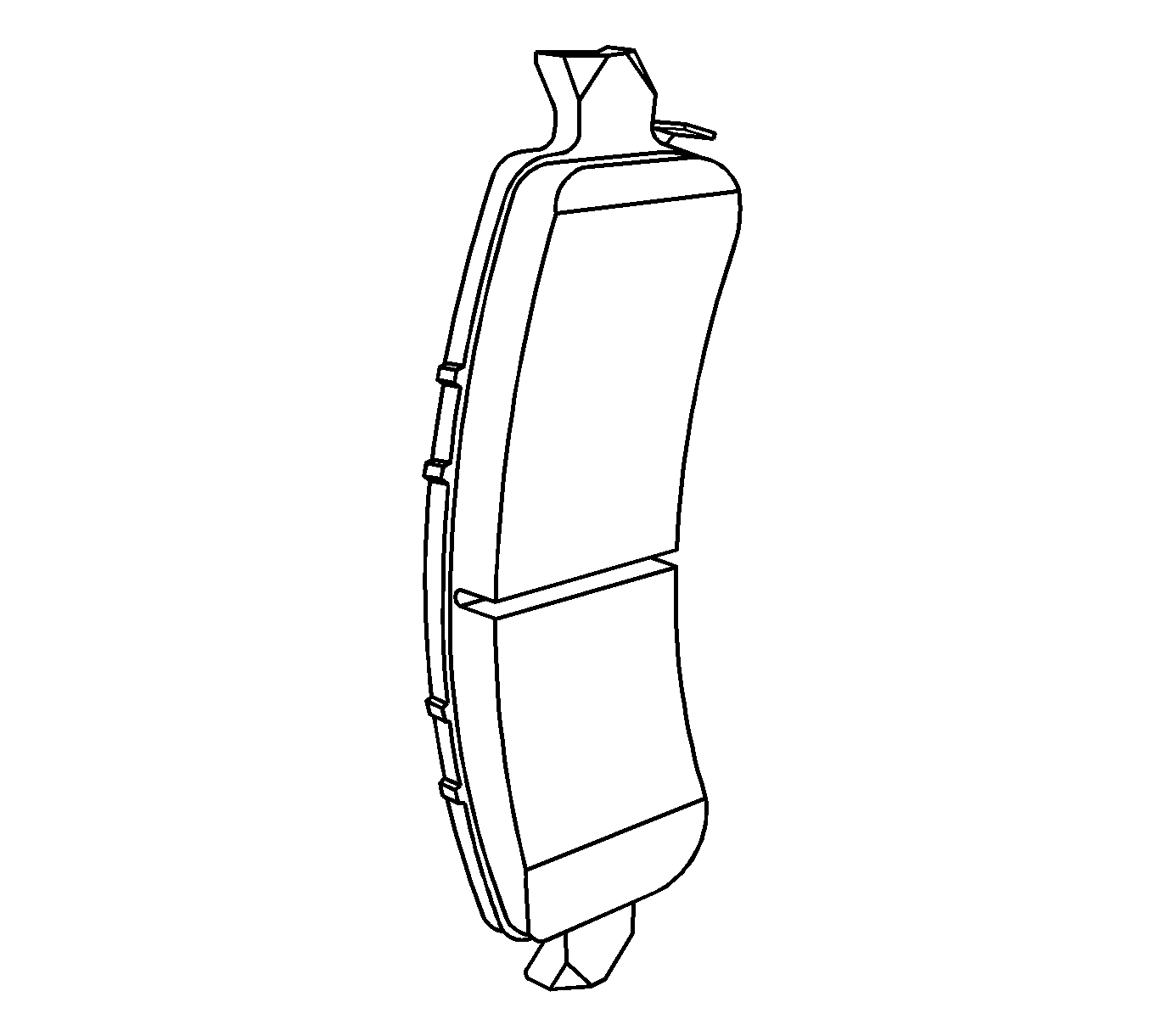
Important: Proper orientation of the brake pads is critical for proper pad wear.
Rear Disc Brake Pads Replacement 15 Series Pickup
Removal Procedure
- Inspect the fluid level in the brake master cylinder reservoir.
- If the brake fluid level is midway between the maximum--full point and the minimum allowable level, no brake fluid needs to be removed from the reservoir before proceeding.
- If the brake fluid level is higher than midway between the maximum-full point and the minimum allowable level, remove brake fluid to the midway point before proceeding.
- Raise and support the vehicle. Refer to Lifting and Jacking the Vehicle in General Information.
- Remove the tire and wheel assembly. Refer to Tire and Wheel Removal and Installation in Tires and Wheels.
- Inspect the caliper operation. Refer to Brake Caliper Inspection .
- Remove the caliper from the mounting bracket and support the caliper with heavy mechanic's wire or equivalent. DO NOT disconnect the hydraulic brake flexible hose from the caliper. Refer to Front Brake Caliper Replacement .
- Inspect the caliper assembly. Refer to Brake Caliper Inspection .
- Remove the brake pads from the brake caliper bracket.
- Remove the brake pad retainers from the brake caliper bracket.
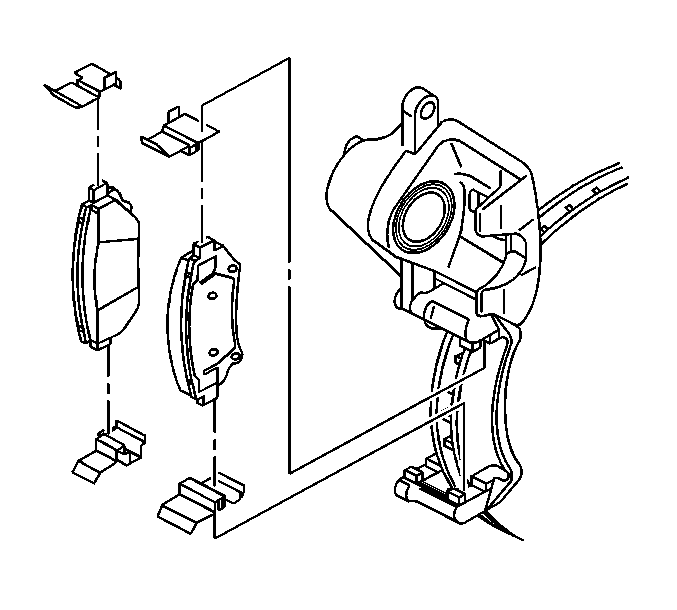
Notice: Support the brake caliper with heavy mechanic wire, or equivalent, whenever it is separated from its mount and the hydraulic flexible brake hose is still connected. Failure to support the caliper in this manner will cause the flexible brake hose to bear the weight of the caliper, which may cause damage to the brake hose and in turn may cause a brake fluid leak.
Installation Procedure
- Using a C-clamp, bottom the piston into the caliper bore. Use an old brake pad or wooden block placed across the face of the piston. Do not damage the piston or the caliper boot.
- Ensure that the piston boot is below the level of the piston face.
- Install the brake pad retainers to the caliper bracket.
- Install the brake pads over the brake pad retainers and onto the caliper bracket.
- Install the tire and wheel assembly. Refer to Tire and Wheel Removal and Installation in Tires and Wheels.
- Lower the vehicle.
- With the engine OFF, gradually apply the brake pedal to approximately 2/3 of it's travel distance.
- Slowly release the brake pedal.
- Wait 15 seconds, then repeat steps 7-8 until a firm pedal is obtained. This will properly seat the brake caliper pistons and brake pads.
- Fill the master cylinder reservoir to the proper level with clean brake fluid. Refer to Master Cylinder Reservoir Filling in Hydraulic Brakes.
- Burnish the pads and the rotors. Refer to Brake Pad and Rotor Burnishing .

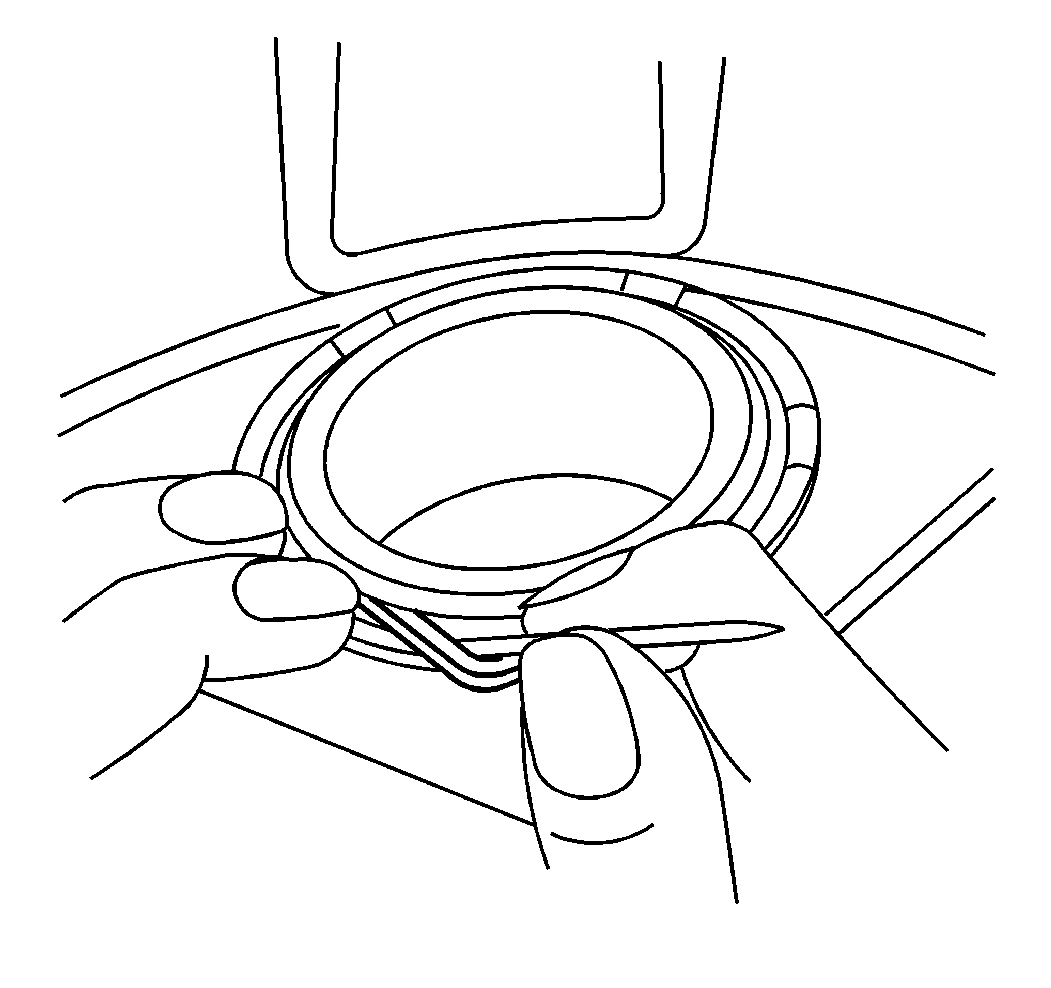
Important: Use a small flat-bladed tool and lift the inner edge caliper boot next to the piston to release any trapped air.

Important: Ensure that the wear sensor is positioned at the leading edge (upward) of the inner pad during forward wheel rotation.
